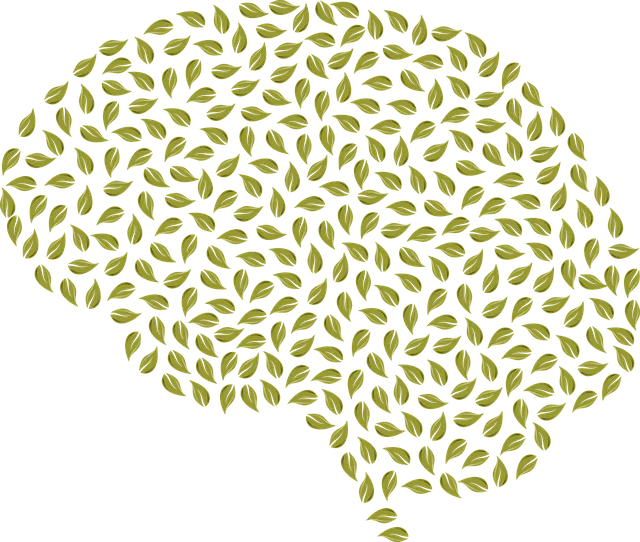Mental wellness journaling, advocated by Wheat Ridge Kaiser Permanente's behavioral health services, is a daily practice of documenting thoughts, emotions, and experiences to gain self-awareness and process mental health patterns. This method enhances well-being, fosters resilience, and aids in managing stress, anxiety, and depression by providing a safe space for reflection without judgment. Wheat Ridge Kaiser Permanente offers comprehensive resources, workshops, and online tools to support journaling as an effective self-care tool, also promoting it among healthcare professionals to improve mental wellness and stress management.
Unwind your mind and embark on a journey of self-discovery with mental wellness journaling. This powerful practice, backed by Wheat Ridge Kaiser Permanente behavioral health services, offers a sanctuary for processing thoughts and emotions. In this article, we’ll explore the transformative power of journaling, from understanding its fundamentals to uncovering its profound benefits. Get ready to create your personalized routine and cultivate optimal mental wellbeing through the simple yet effective act of self-expression.
- Understanding Mental Wellness Journaling: A Personal Journey to Self-Discovery
- The Benefits of Regular Practice: How Wheat Ridge Kaiser Permanente Behavioral Health Services Can Help
- Creating Your Journaling Routine: Practical Tips and Exercises for Optimal Mental Wellbeing
Understanding Mental Wellness Journaling: A Personal Journey to Self-Discovery

Mental wellness journaling is a powerful tool for self-discovery and personal growth, encouraged by behavioral health services like those offered at Wheat Ridge Kaiser Permanente. It’s more than just writing; it’s a journey into one’s mind, emotions, and thoughts. By jotting down their experiences, feelings, and reflections daily, individuals can better understand themselves and cultivate a deeper sense of awareness.
This practice allows for the exploration of both positive and negative experiences, fostering a space where one can process emotions, set goals, and track progress. Much like the episodes in a mental wellness podcast series production, each entry offers a chance to reflect on the day’s events and gain insights that contribute to overall well-being. Over time, these written records can help individuals identify patterns, shift negative thought cycles towards positive thinking, and ultimately navigate life’s challenges with resilience and clarity.
The Benefits of Regular Practice: How Wheat Ridge Kaiser Permanente Behavioral Health Services Can Help

Regular mental wellness journaling can significantly enhance one’s overall well-being and resilience. By dedicating a few moments daily to reflect on thoughts, emotions, and experiences, individuals can cultivate self-awareness, gain valuable insights into their mental health patterns, and develop healthier coping mechanisms. This practice is especially beneficial for managing stress, anxiety, and depression, as it provides a safe space to process feelings without judgment.
Wheat Ridge Kaiser Permanente behavioral health services recognize the power of journaling as a therapeutic tool. They offer comprehensive resources and guidance tailored to support individuals in integrating this habit into their self-care routines. Through workshops, counseling sessions, and accessible online tools, they empower people to enhance their mental wellness journey. Additionally, their crisis intervention guidance ensures that individuals have access to immediate support when facing challenging situations, fostering a proactive approach to risk management planning for mental health professionals.
Creating Your Journaling Routine: Practical Tips and Exercises for Optimal Mental Wellbeing

Creating a journaling routine can be a transformative practice for enhancing mental wellness, especially for healthcare professionals. At Wheat Ridge Kaiser Permanente behavioral health services, we emphasize the importance of self-care and stress management strategies, including this simple yet powerful tool. Start by setting aside just 15 minutes each day for your journal—a dedicated time to reflect, process, and explore your thoughts and emotions. Choose a quiet space where you can be uninterrupted, whether it’s before bed or in the morning to set an intention for the day.
Consider incorporating prompts tailored to your unique experiences as a healthcare provider. For instance, reflect on a challenging interaction with a patient and what you learned from it. This practice fosters cultural sensitivity in mental healthcare by encouraging empathy and understanding. Alternatively, jot down three things you’re grateful for, especially if they relate to personal resilience or professional achievements in burnout prevention strategies. Remember, journaling is a personalized journey; adapt these tips to fit your style and needs, ensuring a consistent practice that supports both your mental health and risk management planning.
Mental wellness journaling is a powerful tool accessible to everyone, offering a means to track mood, manage stress, and foster self-discovery. By integrating this practice into daily life, individuals can enhance their resilience and overall mental wellbeing, supported by the expert guidance of Wheat Ridge Kaiser Permanente behavioral health services. With dedicated time and creativity, anyone can harness the benefits of journaling to navigate life’s challenges with greater clarity and emotional balance.






